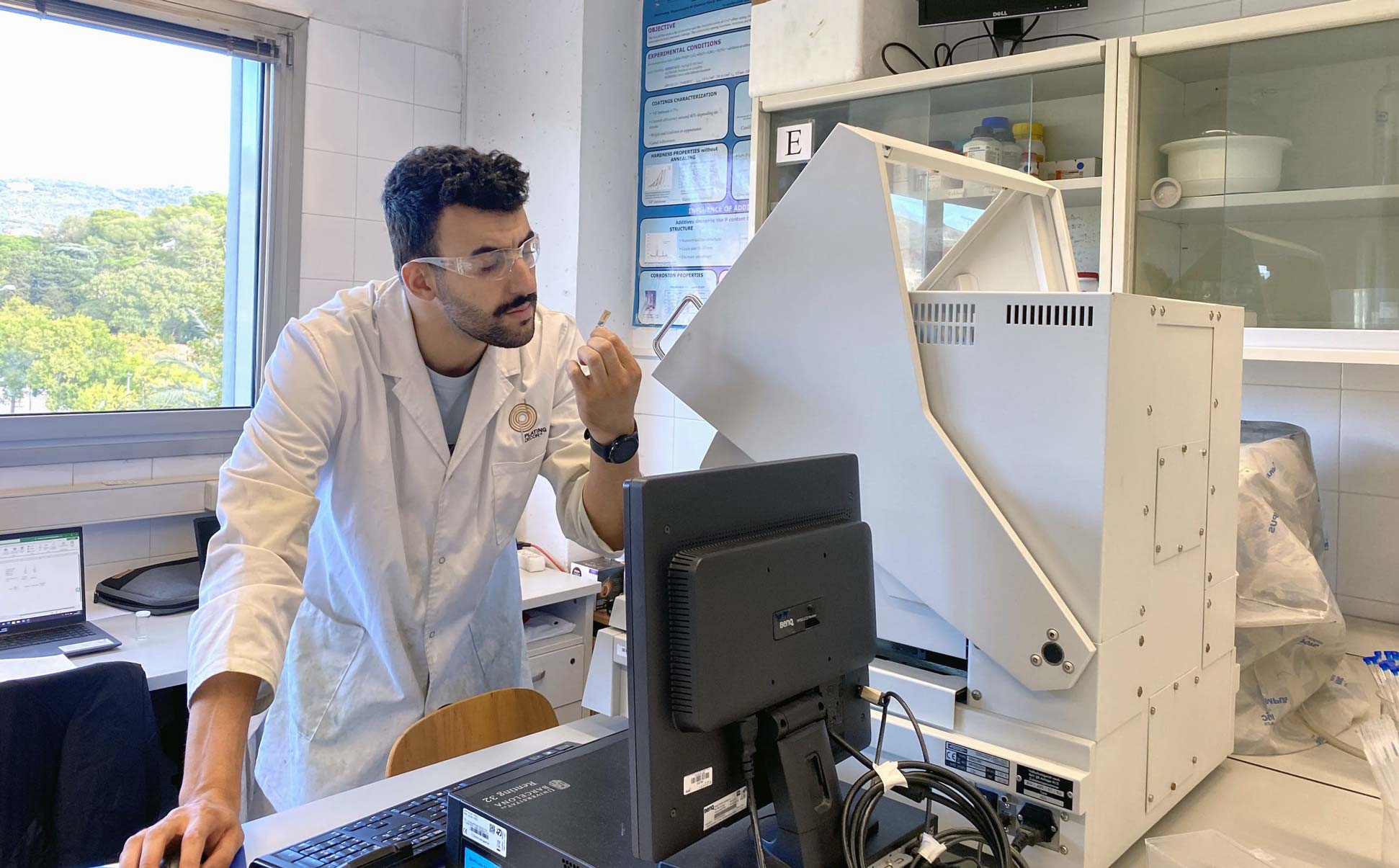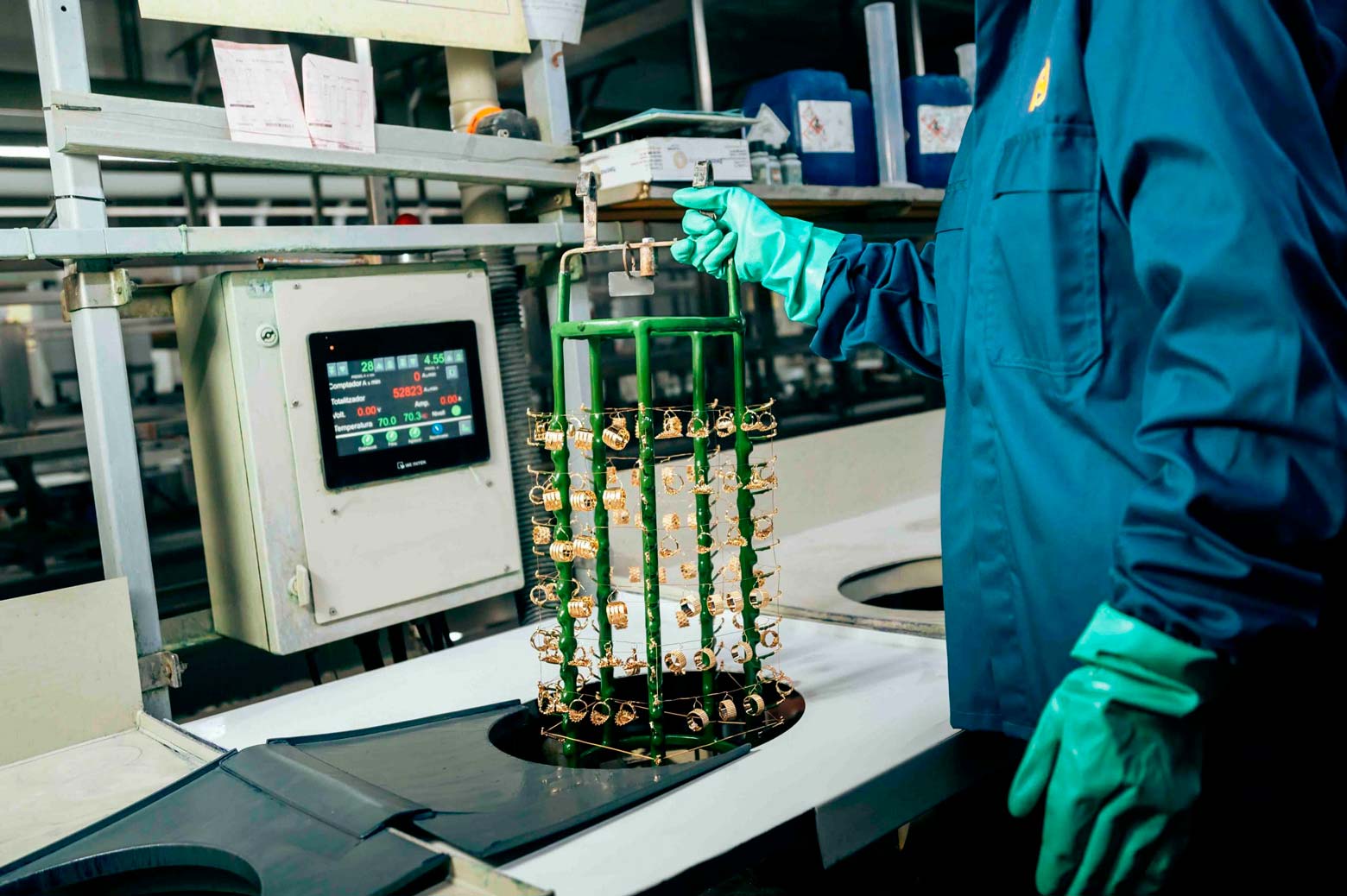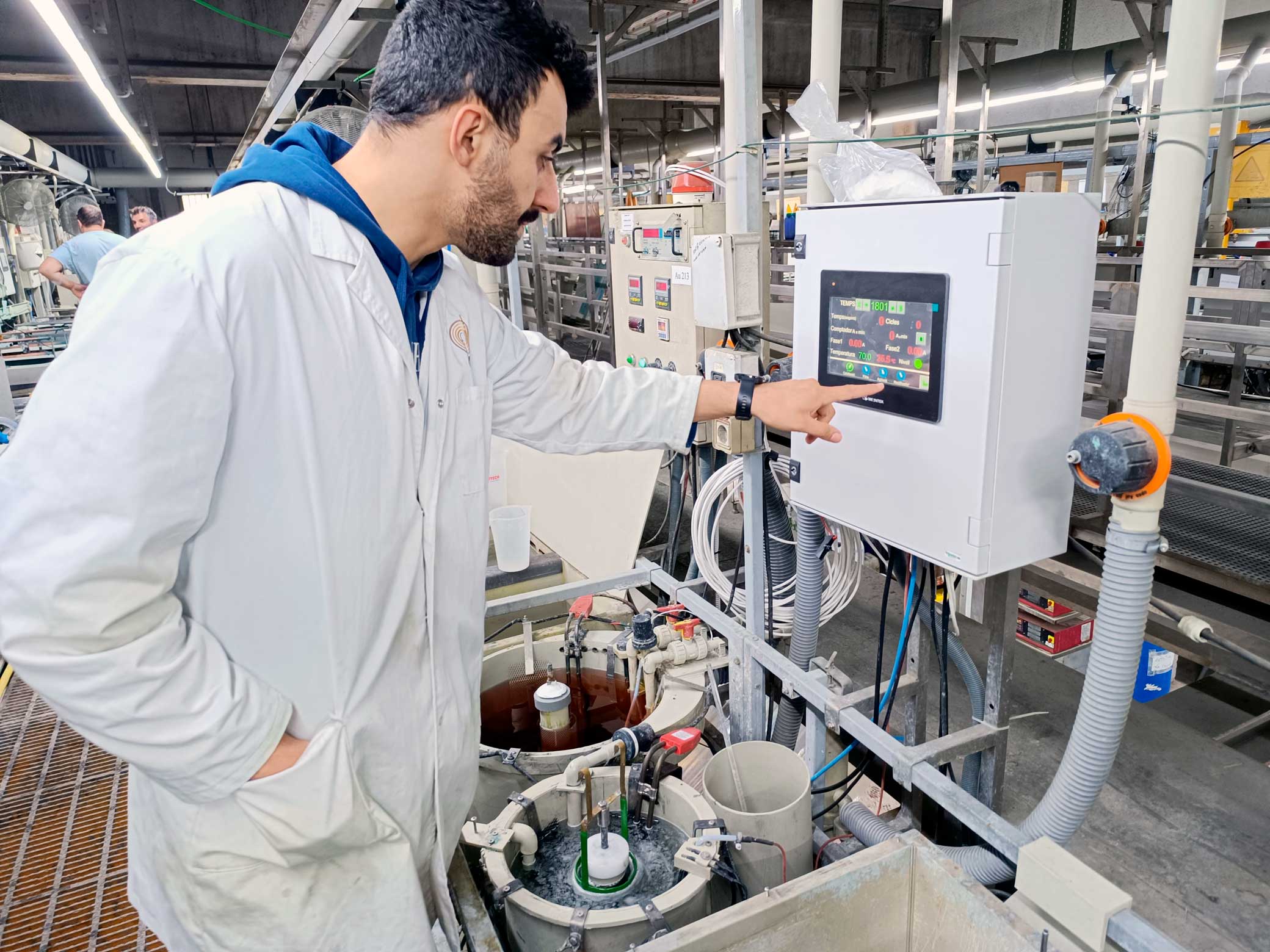
THE ORIGIN OF THE PROJECT
Mohamed Amazian El Moussaoui is the industrial doctoral student of the collaborative research project between the company Plating Decor S.L. and the Sustainable Electrochemical Processes group of the University of Barcelona (UB). He was also the representative of the UB in the contest "Theses in 4 minutes" organized by the Catalan Foundation for Research and Innovation (FCRi).
Inspired by the challenge of climate change, Mohamed Amazian has dedicated himself to the search for innovative materials with the potential to mitigate its effects. This concern led him to obtain a degree in Chemistry and a Master's Degree in Applied Materials Chemistry before becoming an industrial doctoral student at the company Plating Decor S.L., a company from Sant Feliu de Llobregat specialized in the treatment of surfaces by deposition of precious metals for sectors as varied as jewelry, electronics, automotive, aeronautics, medicine, etc. In this case, the company is also specialized in 18-carat gold coatings for decorative pieces.
The truth is that these electrochemical processes present challenges in terms of environmental sustainability and dependence on external supplies. It is first necessary to understand what we are talking about when we refer to the electrodeposition technique: it is a technique that allows an object to be covered with a thin layer of metal by passing an electric current; in the case of Mohamed Amazian's research, it is an 18-carat gold coating. The procedure consists of immersing the object in a bath with different components and applying electric current to it. This current causes the metals in the bath to settle on the surface of the object, thus creating a uniform coating. One of the main applications of electroplating is in the jewelry industry, where it is used to coat pieces with precious metals such as gold or silver. It is also used in the automotive industry for corrosion protection, as well as in other sectors related to electronics and materials engineering.

The challenge of reducing the environmental impact of an industrial process
The company has identified a challenge in its industrial process that it wants to overcome with this industrial doctorate project. Essentially, the problem is that these baths contain components that are harmful to the environment, such as cyanides. That is why this industrial doctorate project seeks more sustainable alternatives that minimize the use of these harmful components.
But there is more, the most remarkable fact is that the metals used in these coatings can also be used in other electrochemical processes that would allow us a more sustainable future, such as the transformation of atmospheric CO₂, one of the gases that contributes to climate change, or the revaluation of secondary industrial products. That is why this project has a double objective, to improve the deposition process used in jewellery and to open up the possibility for the company to produce materials for environmental purposes. According to Amazian, the potential impact of his research is focused on "reducing the toxic components of the electrolyte bath, finding a more robust manufacturing process than the current one, and above all finding alternative applications".
As usual in any research process, Mohamed Amazian's work involves significant challenges. Before starting the project, Mohamed did an internship that was essential to understand the company's problems; Especially because he came from a very different field of work, although he was also related to the fight against climate change. When studying the bathroom formula that Plating Decor uses for the coatings, Mohamed admits that "the almost total ignorance of the composition was a barrier to understanding the process that had to be overcome", which made it difficult to understand the whole process. The process of overcoming these obstacles has been an effort shared by all, which includes the experience of the company's technicians, the expertise of the faculty's electrochemical researchers and even the use of calculation and simulation tools provided by theoretical research groups.
With regard to the impact of its research on society and the industrial fabric, Amazian identifies three axes of potential impact: the reduction of toxic components, the establishment of a more robust and reliable manufacturing process, and the search for alternative applications. These advances could have repercussions beyond the specific industry of decorative coatings, serving as a model for other industrial sectors that can transform traditionally polluting industrial processes into much more ecological versions: "In particular, I am very interested in uniting the decorative purpose with the environmental purpose. It would be great if the same coating that until now has been shown to be attractive, we obtain it in other conditions and use it to reduce carbon dioxide," says Amazian.

Although the industrial doctorate project has not yet been completed, Mohamed Amazian's personal and professional balance is positive. The fact of participating in an industrial doctorate project has provided the interviewee with an enriching dual experience, with a vision of both the academic world and the business world: "it is very enriching to see how the same problem is approached from these two worlds, as well as the rhythms of work and organization".
With initiatives like this, Plating Decor S.L. and the University of Barcelona collaborate to set a new standard at the intersection between science and industry, which can not only have a significant impact on the way metallurgy is understood in the materials science sector, but also on our global fight against climate change.

